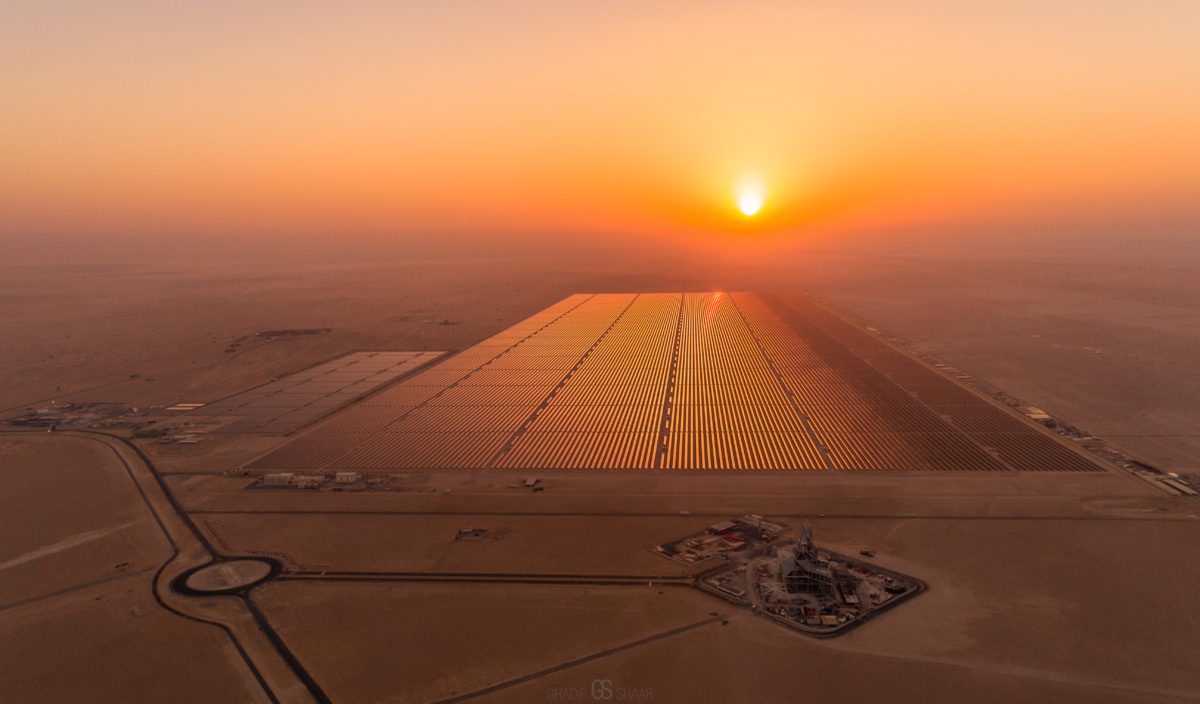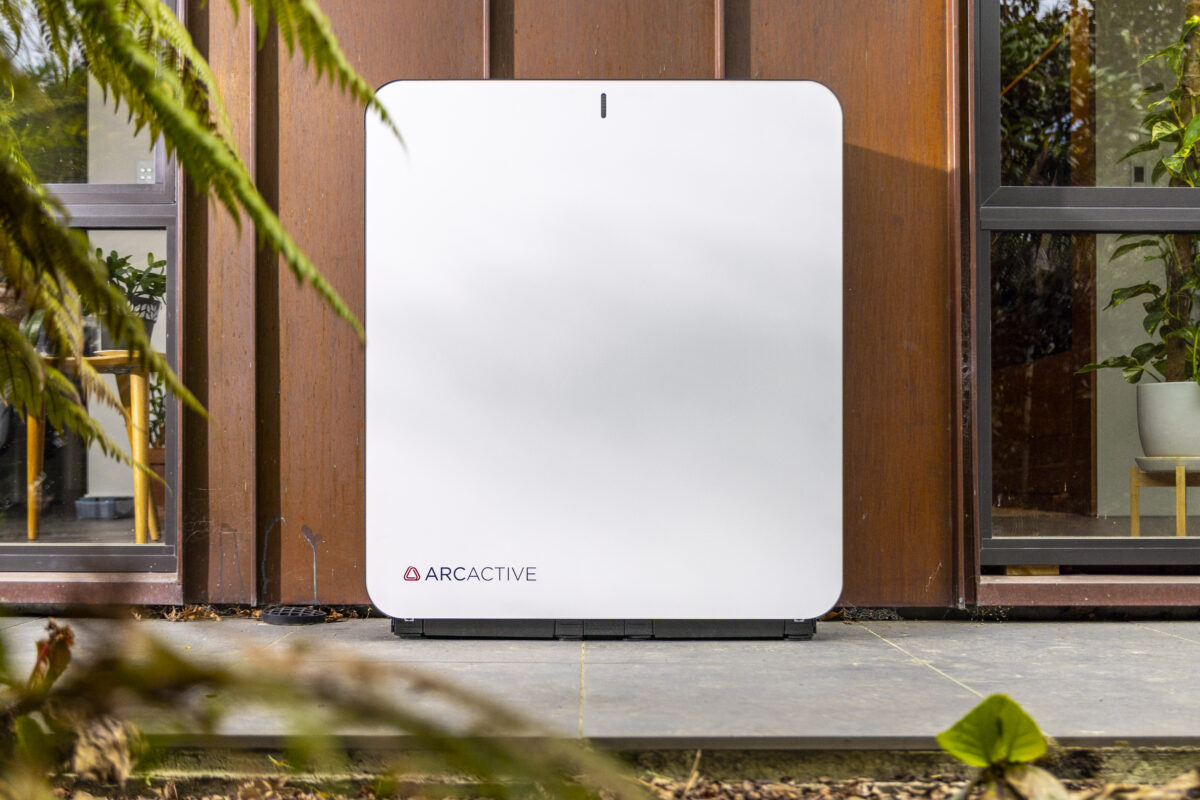From pv magazine Global
A report by the International Renewable Energy Agency (IRENA) has suggested affordable green hydrogen could already be obtainable, based on the record-breaking low prices for solar negotiated in the Middle East.
Solar electricity tariffs of US$0.0157, US$0.0135 and US$0.0104 per kilowatt-hour agreed in Qatar, the United Arab Emirates and Saudi Arabia, respectively, in the last 18 months, would enable renewables-powered hydrogen to be produced for as little as US$1.62 per kilogram, according to IRENA’s Renewable Power Generation Costs in 2020 report.
The Abu Dhabi-based international body made its calculations – all of which are in U.S. dollars – based on the US$0.0104 solar power tariff agreed in Saudi Arabia in April, with green hydrogen generation being modelled at the Dumat al Jandal site in the kingdom which boasts strong solar and wind power resources. With the site already hosting a wind farm, IRENA modelled a hydrogen plant which would also harness solar and be connected to the grid. The report suggested lack of a grid connection would raise the renewable hydrogen cost to US$1.74/kg, which still compares favourably to the current US$1.45-2.40/kg price of hydrogen production powered by natural gas and equipped with carbon capture and storage (CCS) tech.
Further extrapolating the costs, the study estimated a fall in hydrogen electrolyser costs, from US$750 per kilowatt of capacity to US$350, would enable renewable hydrogen production for US$1.16/kg. Raising electrolyser efficiency to 72.5% and extending stack lifetime from 15 to 17.5 on top of that, IRENA said, could take green hydrogen below the prized US$1/kg point.
With this year’s renewables price report explaining how the three tariffs secured in the Middle East since January 2020 can be regarded as viable without any hidden caveats or subsidy, the authors of the study stated: “low-cost renewable hydrogen may already be in reach.”
The document fleshed out how up to 800 GW of coal-fired power generation capacity worldwide could already be replaced by newly-built renewable energy facilities as solar and wind prices have dipped under the cost of running legacy fossil fuel plants in many markets. That estimate included a US$5/MWh cost of integrating renewables into the electric grid and IRENA said, with around 40% of that overpriced capacity – and 37% of actual generation – based in Bulgaria, Germany, India and the United States, decommissioning could save around US$32 billion per year in energy costs. Making the switch would also eliminate three gigatonnes of carbon emissions – 20% of what IRENA estimates is needed to keep global heating to a maximum 1.5 degrees Celsius this century.
The data
The latest edition of the report is based on data from around 20,000 renewables generation facilities worldwide which account for 1.9 TW of generation capacity, and on clean energy auction prices and power purchase agreements which add up to 582 GW of capacity. All the figures in the study exclude any form of subsidy and the authors point out, adding CCS to the world’s overpriced coal plants would merely drive up their costs further.
IRENA has estimated all of Bulgaria and Germany‘s coal plants will this year cost electricity bill payers more than new renewables facilities would, based on a European carbon emissions price of €50 per ton. Even without an emissions trading scheme in the U.S. and India, the picture is similar, with 77-91% of American coal plants and 87-91% of Indian facilities also overpriced.
That conclusion is based on an estimated levelised cost of energy (LCOE) for solar power in India this year of US$0.033/kWh, down from US$0.038 last year; and of US$0.031 in the States this year, although the report’s authors note the solar module price has picked up between 1% and 9% in the first quarter of this year, thanks to shortages of raw materials such as polysilicon.
With the global LCOE of solar having fallen 7% from 2019 to last year, from US$0.061 to US$0.057/kWh, India led the world for low-price PV last year, with an average LCOE of US$0.038/kWh for utility scale generation, ahead of China, with US$0.044, and Spain, with US$0.046. The authors noted Turkey also rapidly reduced average solar tariffs, to US$0.052 last year, and Australia posted an average US$0.057.
That translated into average solar project development costs of US$596 per kilowatt installed in India, the world’s lowest figure and down 8% from Indian costs in 2019. Solar projects in Vietnam came in to US$949/kW and were only US$796/kW in Spain last year, the report added. At the other end of the scale, projects in Russia cost US$1,889/kW and, in Japan, US$1,832, with those two countries exceptional among the 19 markets studied as the cost differences between areas from Canada (at US$1,275/kW) down to India, were more evenly distributed.
Auction results posted last year, for projects expected to be commissioned this year and next, prompted IRENA to estimate the global average solar power price will fall to US$0.039/kWh this year before rising slightly to US$0.04 next year, which would still be a 30% fall on this year’s figure and 27% less than the LCOE to be expected from new-build coal plants. With the predictions based on 18.8 GW of renewables capacity expected this year and 26.7 GW due in 2022, the study estimated 74% of the clean energy facilities expected this year and next will be cheaper than new fossil fuel generation sites.
Cheaper
Renewables are already making real headway, of course, with IRENA calculating 45.5 GW of the solar added last year was among the 62% of the 162 GW of clean energy facilities which were installed more cheaply than new-build coal plants.
Digging into the solar statistics, the report said mainstream solar panel costs in December ranged from US$0.19 to US$0.40 per Watt, for an average price of US$0.27, with thin-film products averaging US$0.28/W.
Operations and maintenance costs came in at an average of US$17.80/kW last year in OECD countries and US$9 elsewhere, in a year which also saw non-panel, balance-of-system equipment costs account for 65% of total project expense.
For residential solar arrays, average system prices in the 19 markets studied by IRENA ranged from US$658/kW in India to US$4,236 in California, for LCOE figures from US$0.055/kWh in India to US$0.236 in the U.K. For commercial systems, India was again the cheapest place to invest last year, at an average US$651/kW, but a business in California would have to find US$2,974/kW. Those system costs translated into LCOE numbers ranging between US$0.055 in India and US$0.19 in Massachusetts.
This content is protected by copyright and may not be reused. If you want to cooperate with us and would like to reuse some of our content, please contact: editors@pv-magazine.com.









By submitting this form you agree to pv magazine using your data for the purposes of publishing your comment.
Your personal data will only be disclosed or otherwise transmitted to third parties for the purposes of spam filtering or if this is necessary for technical maintenance of the website. Any other transfer to third parties will not take place unless this is justified on the basis of applicable data protection regulations or if pv magazine is legally obliged to do so.
You may revoke this consent at any time with effect for the future, in which case your personal data will be deleted immediately. Otherwise, your data will be deleted if pv magazine has processed your request or the purpose of data storage is fulfilled.
Further information on data privacy can be found in our Data Protection Policy.